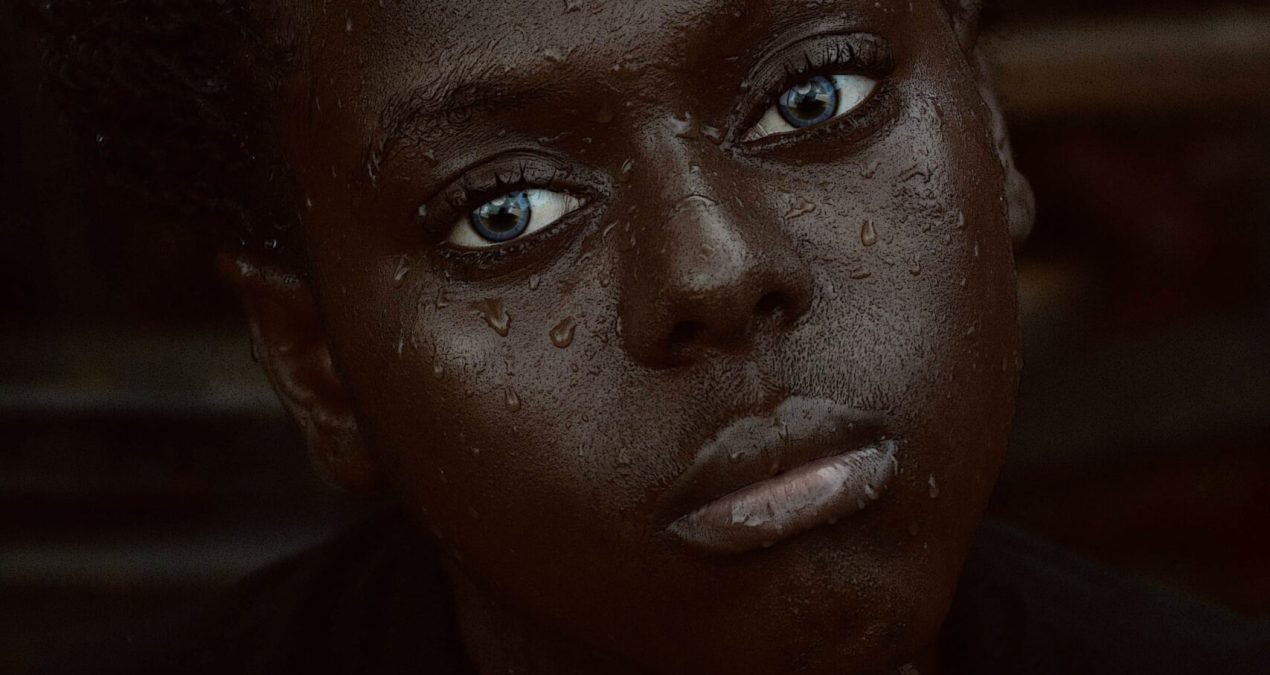Nigeria is a pluralistic society. In other words, this means that in Nigeria, varying cultures, traditions and religions exist side by side. In the legal sphere, the situation is not different as customary law exists alongside statutory legislations and Islamic laws. This often leads to clashes and nowhere is this more evident than the rights of women to inherit immovable property in Nigeria.
DAUGHTERS
In the Yoruba customary law, it is an established fact that ‘all children are entitled equally to their father’s estate irrespective of their sex’[1]. In fact, the Court decided in Ricardo v. Abal[2] that where a man dies leaving two houses and two children, male and female, the female if older has the first choice as to which house she wants when the house is eventually partitioned.
The Igbo customs and traditions on the other hand do not permit daughters to inherit landed property. This custom was recognized by the Courts in Nezianya v. Okagbue[3]. As a matter of fact, it is customary that where a man dies without sons, his landed property devolves to his brothers and not his daughters.
In recent times however, the Court have been giving full effect to the provisions of the 1999 Nigerian Constitution (as amended) that recognizes the right of every citizen to acquire and own immovable property in Nigeria [4]and the provision that no person should suffer any disability or restriction because of his or her sex[5]. By giving effect to these provisions, the Supreme Court has declared customs prohibiting female inheritance of property as unlawful and amounting to violations of the Constitutional rights of Women. According to the Court, such customs are repugnant to natural justice, equity and good conscience because “it is the monopoly of God to determine the sex of a baby and not the parents[6]”.
Islamic Law[7]
In the Northern part of Nigeria, the Islamic law holds sway and has overshadowed the pre-existing customary law that existed. By the Islamic law, the position of a daughter depends on whether or not she had a brother (i.e. whether or not her deceased Father had a son). If the deceased Father had a son and a daughter, the share of inheritance of the daughter is one-half (1/2) of the share of the son (i.e. her brother).
If the deceased had only one child, a daughter, she is entitled to a half of her late Father’s estate (1/2). If the deceased had two or more daughters but did not have a male-child, the daughters are entitled to two-third of the estate (2/3) and such should be divided equally between themselves.
WIDOWS
Customary Law
The position of the widow under the customary law is that of a pitiable estate. Generally, a widow was not thought of as a member of the family for the purposes of inheritance of the property of her deceased husband[8]. In fact, they were regarded as part of the ‘chattels’ or the property to be inherited. They could even administer the estate of their late husband[9]. The disability of a widow under the customary law was so extensive that they could not even sue or claim as the guardian ad litem on behalf of her infant children[10].
Under the Yoruba customary law, the rationale for this treatment of widows was probably because the widow had an interest in the family land of her father. But under the Igbo customary law where the widow neither had an interest in the family land of her father nor that of her late husband[11], she was truly in a dire state.
However, under the Igbo customary law, the widows could successfully such as a next friend on behalf of their children and not a guardian. They were entitled to the personal property of a child who died intestate[12]. They also had the right to reside in their deceased husband’s family house for the rest of their lives by virtue of their children’s interest dependent upon their good behavior. But the term, ‘good behaviour’ is very vague and subjective thus placing the widow to the whims and caprices of her husband’s family.
In some parts of Igbo land, like in Anambra State, the customary law does not even grant a widow that does not have a male child the right to possess the landed property of her late husband. Luckily, the Courts have also struck down this custom as being “barbaric and repugnant to natural justice, equity and good conscience”.[13] Also, there are now laws that criminalize the abusive widow practices. An example of such a law is the Violence Against Persons Prohibition Act of 2015[14].
Islamic Law
Islamic Law provides that a widow is entitled to a fourth (1/4) of the estate of the deceased if the deceased did not have any child. But where the deceased had children, the widow is entitled to an eight (1/8) of the estate of the deceased. Where the deceased had more than one wife, the wives of the deceased are jointly entitled to an eight (1/8) of the estate of the deceased which they must share equally.
DIVORCED WIVES
Recent times have witnessed the rise of pre-nuptial agreements between intending couples. But for the majority of Nigerians who regard pre-nuptial agreements with suspicions and distrust, the question is: what can be done “if the marriage comes to grief”[15]. In considering a suit for settlement of property upon divorce generally, the Court considers what is just and equitable in the circumstance[16]. As a result of this, the general principle in settlement of property is that all the resources belonging to a couple are expended for their joint benefit; the landed property should also belong to them jointly[17].
An interesting example of where an application for settlement of property played out may be seen in the case of Alfred Adedeji Egunjobi v. Mabel Olufunlayo Egunjobi[18]. Here, the parties to this suit were divorced. The ex-wife (in this suit, the respondent) filed a summons at the Abeokuta High Court for an order declaring that the family house/building at Quarry Road, Abeokuta belonged to herself/respondent and the petitioner/husband equally because she contributed towards the completion of the house. But the husband/petitioner/appellant challenged the summons by saying the house belonged to him alone because he got the house and had started building on that land before he met and married the respondent.
So what was the response of the Court to this sort of case?
In this case, the Court will look at the existing evidence to try to look at the intentions of the parties as at the time of the transaction to determine whether the wife is entitled to joint ownership of the property or whether the wife merely has a beneficial interest.
The answer to this will depend on whether the contribution was direct (e.g. through a purchase, mortgage, lease and direct payment) or indirect (e.g. through painting, redecoration, improvements e.t.c). Where the contribution was direct, the wife would get a share in direct proportion to what she contributed. But where the contribution was indirect, the interest of the wife will depend on the nature of the contribution. In the Egunjobi’s case, the Court decided that the wife was entitled to a third interest in the contested building as that was proportionate to her direct contribution in respect of the property.
A further contrast of two cases may be useful to give a better illustration: In Button v. Button[19], a husband bought a cottage in his name and with his money. He further engaged the services of workmen to work on the cottage while the wife painted as well as decorated the house and improved the garden. In a claim for an interest in the cottage, the Court held that what the wife did was not enough to give her a share of beneficial interest because what she did was the work of an ordinary house wife[20].
In Fribance v. Fribance[21], it was held that if a wife refuses to collect housekeeping allowance for a period of time and instead shoulders the household expenses to enable her husband save up to build a house, then she has a beneficial interest in that house.
ADMINISTRATION OF ESTATES LAW OF LAGOS
This law was promulgated to administer the estates of deceased persons. From the start however, this legislation is restrictive as it excludes customary marriages and Islamic law marriages from its ambit of operations.
In any case, this law ensures the distribution of the real and personal estate of a person who died intestate (that is, without a will) in the following order of priority[22]:
The surviving husband or wife
The children of the deceased
The parent of the deceased
The siblings of the deceased of whole blood
The siblings of the deceased of half blood
The grandparents of the deceased
Uncles and aunts of the deceased of whole blood
Uncles and aunts of the deceased of half blood.
This is a wonderful legislation in the Nigerian legal sphere as it recognizes the rights of widows and daughters to inherit property. What’s more- it grants the widow priority in the distribution of estate.
Further, the law provides that in matters of distribution, a husband and wife should be considered as two persons[23]. Again, where the personal law of the deceased was customary law but that deceased person before his demise got married under the Marriage Act, distribution of his property will not be done via customary law but by the Administration of Estates Law[24]. Therefore, the order of priority mentioned above will apply.
Hope you enjoyed the read.
Memabasi Udowoima BL
[1] Ramotu Wuraola Salami v. Saibu Ladip Salami & ors (1957) WRNLR 10; Alake & ors v. Pratt 15 WACA 20; Barretto & ors v. Kadiri Oniga (1961) WNLR 112; Lopez v. Lopez (1924) 5 NLR 50
[2] (1926) 7 NLR 58
[3] (1961) 1 All NLR 352; Uboma & ors v. Ibeneme & Anor (1967) FNLR 251
[4] Section 43 of the 1999 Nigerian Constitution
[5] Section 42 of the 1999 Nigerian Constitution
[6] Mojekwu v. Mojekwu (1997) 7 NWLR 283; Mojekwu v. Ejikeme (2000) 5 NWLR 402; Ukeje v. Ukeje (2014) JELR 54676 (SC)
[7] Al-Qur’an 4:11
[8] Suberu v. Sunmonu (1957) 2 FSC 33
[9] Aileru & ors v. Anibi (1938) 14 NLR 83
[10] Aileru & ors v. Anibi (1938) 14 NLR 83; Lawal & ors v. Younan & ors (1961) WNLR 198
[11] Nezianya v. Okagbue (1963) 1 All NLR 352; Ejiamike v. Ejiamike (1972) ESLR 11; Ugbomia v. Ibeneme (1967) FNLR 257
[12] Christiana Adedoyin v. Mary .A. Simeon & ors 1 FLRN 107
[13] Anekwe v. Nweke (2014) 9 NWLR 2014 Part 1412 at 393
[14] Section 15 of the Act
[15] Re Rogers’ Question (1948) 1 All ER 328
[16] Section 72 of the Matrimonial Causes Act; Akinbuwa v. Akinbuwa 6 FLRN 374 (1998); 7 NWLR (pt. 559) 661; Section 17 Married Women Property Act; Oghoyone v. Oghnoyone 9 FLRN (2010); Doherty v. Doherty 9 FLRN (2009); As a result of this, in Mueller v. Mueller 8 FLRN 627 at 637, the Court held that where property is bought in the name of the husband solely, it belonged to the husband and wife jointly.
[17] Fribance v. Fribance (1957) 1 All ER 357 (CA
[18] 3 FLRN 19; (1976) 2 FNLR 78
[19] (1968) 1 All ER 1064
[20] The Court also used this reasoning to arrive at a similar decision in Gissing v. Gissing (1970) 2 All ER 780 (HL)
[21] (1957) 1 All ER 357 (CA); Also followed in Egunjobi v. Egunjobi supra
[22] Section 49(1) of the Administration of Estates Law
[23] Section 49(2) of the Administration of Estates Law
[24] Section 49(5) of the Administration of Estates Law



